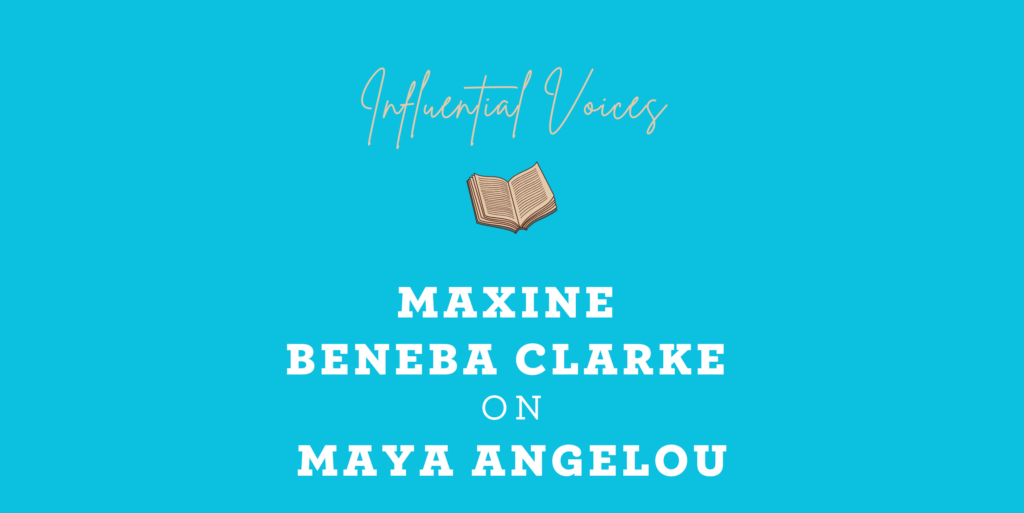
I am a nightmare reader: demanding, almost impossible to impress. An engaging, beautifully written story is only half of what I seek. To see soul — beyond the successful and eloquent construction of other lives and worlds — to have words fundamentally alter my being, is ultimately what I’m seeking when I pick up a book and start to read. From the outset, Maya Angelou’s work did this for me.
It’s not just that Maya Angelou writes powerfully on big subjects — racism; grief; child abuse; ambition; protest; violence; parenthood. It’s in her elegantly unexpected turn of phrase. In the soul that sings in every single sentence.
When Angelou writes, in her first memoir I Know Why the Caged Bird Sings (1978), of the new lavender taffeta dress her Momma’s made her as a small girl, she says I was going to look like one of those sweet little white girls who were everybody’s dream of what was right with the world. A child’s church finery becomes not just a child’s church finery. The dress becomes a politics. The purple taffeta creation becomes the hope and aspirations of an entire people.
When Angelou talks of two women laughing together in her third memoir, Singin’ and Swingin’ and Gettin’ Merry Like Christmas (1985), they cackled like two old crones, remembering a secret past. They are not just laughing, inside those smiles they are bonding; remembering; history-keeping.
In each of Angelou’s works, she leaves a little something of the self. I know, as a writer, how exhausting this can be. The lesson I take from her journey is that this generosity of experience can be achieved without losing oneself — that there is, in the sharing itself, a joy, even when the experiences recounted are trying or heartbreaking.
I first stumbled across a Maya Angelou poem in my mid-high school years. Eighties and 90s suburban Sydney was a tough place for a feisty brown- skinned girl. Her poem ‘Still I Rise’ was almost a spiritual, and though it grew out of Angelou’s experiences growing up in the American south, the sheer defiance of her words steeled me — it was as if, from across the oceans, she had reached out and passed me a coat of armour.
You may shoot me with your words / You may cut me with your eyes / You may kill me with your hatefulness / But still, like dust, I’ll rise.
As a writer, I’m a jack-of-all-trades: a shape-shifting creature in an industry where it’s easy to allow yourself to be pigeon-holed. I started out working primarily in spoken word, published poetry collections then moved on to short fiction. I write regularly for a newspaper and have signed on to write memoir, a children’s picture book and a novel in the coming years.
Angelou’s versatility as a writer and performer has been an inspiration. As a young single mother in her 20s, she toured the United States, Europe and Africa performing in Porgy and Bess. For a time, she earned a living as a nightclub singer, and a performer in Jean Genet’s The Blacks.
Besides penning seven incredible autobiographies in her life-time, she was a spoken word poet, a teacher, a parent, an activist, a singer, a dancer and an editor. And that’s just for starters. Angelou truly lived. Artistically, she followed her heart and interests wherever they took her, no matter how far off the beaten track that was.
Four and a half years ago, when my own daughter was born, I was able to honour Angelou’s legacy. My daughter was named Maya Lou, to remind her, always, what a small brown girl can grow to become. She is Maya Lou to remind me, always, of the change one determined brown woman can bring.
About the Writer
Maxine Beneba Clarke is an Australian writer of Afro–Caribbean descent. She is the author of the poetry collections Gil Scott Heron is on Parole and Nothing Here Need Fixing. Her short fiction collection Foreign Soil won the 2013 Victorian Premier’s Award for an Unpublished Manuscript, and the Indie Award for Debut Fiction 2015, and was shortlisted for the Stella Prize, the ABIA Award for Literary Fiction Book of the Year and the NSW Premier’s Literary Awards.
